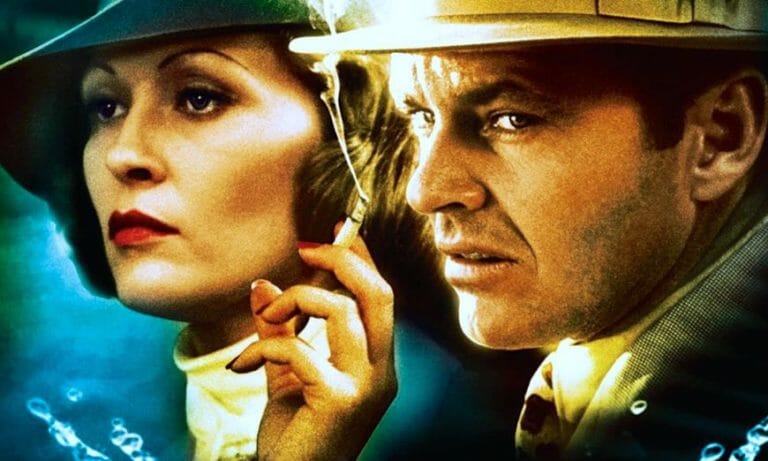Sign up for the
TSL Newsletter
and get $50 off Final Draft 12
By Terris Ko · January 2, 2015

The 1970’s saw a generation of young auteurs come of age, bringing a film renaissance that not only spawned gritty, real-to-life cinema, but the disaster movie and the blockbuster were born. While the enduring greatness of the best of these films all relied on directors with vision and a crop of talented upcoming actors, each of these successes began with the groundwork laid out in the script. Here are 10 of the best screenplays of the decade.
10. Star Wars (1977) (George Lucas)
Just pure popcorn fun? Maybe. But that didn’t make Star Wars any less of a phenomenon. Over 35 years later, the latest sequels to the original in production are still some of the most anticipated movies coming soon, and that kind of long-lived popularity doesn’t come from audiences just being dazzled by spectacular special effects; rather, it’s the story, the characters and the universe they lived and fought in that have inspired wonder from the very beginning.
Although Lucas was skewered for his work on the prequel scripts twenty years later, the fact is, he gave us a world filled with heroes like Luke Skywalker, Princess Leia and Han Solo and villains like Darth Vader.
https://youtube.com/watch?v=kEDKD-R4VHE
7. One Flew Over the Cuckoo’s Nest (1975) (Lawrence Hauben and Bo Goldman)
One Flew Over the Cuckoo’s Nest is another example of an ensemble film owing a large debt to the foundation laid by the screenplay (and source material for that matter). Full of concentrated performances, this cautionary tale (including “be careful what you wish for”) plays out as a microcosm of the anti-establishment times.
6. Kramer vs. Kramer (1979) (Robert Benton, based on the novel by Avery Corman)
Kramer vs. Kramer pulled back the veil and probed deeply into how a father and a son cope when the wife/mother leaves them. In a heartfelt examination of the disintegration of a family’s day-to-day life when faced with the prospect of a sudden unexpected change in the form of the parents’ divorce, Kramer vs. Kramer laid bare each of the father and the son’s pain, and gave them the room to grow to learn to accept their new reality, both as individuals and as a new family.
5. The Sting (1973) (David S. Ward)
The Sting wove story and character together with intrigue and humor, and like a grifter playing the big con, draws you in with the pitch and then hits you with the misdirection. The characters jump off the page, and you’re in the middle of the action from page one. Admittedly, the script comes to life with the charm of Paul Newman and Robert Redford–and the menace of Robert Shaw as the big baddie.
4. Chinatown (1974) (Robert Towne)
Cited as one of the best (and most textbook) screenplays, Chinatown works so effectively because the script seamlessly weaves theme into the marrow of the story and each of the characters. We’re with Jack Nicholson’s private detective Jake Gittes every step of the way, and we’re just as blindsided as he is at the film’s revelations. The worst part is that in the end, we realize the script gave us fair warning; like Gittes, we just didn’t want to believe.
3. Rocky (1976) (Sylvester Stallone)
How many screenwriters have parlayed a script (reportedly written by Stallone in a few days) into a leading role in one of the most successful film franchises ever, not to mention a career spanning decades as writer, director and international superstar?
Fact of the matter is, it all began with a script that introduced the world to a handful of underachievers and has-beens on the fringe, all just looking to get by, and maybe find a little happiness of their own. The characters resonated with audiences, and the rest is history.
In the ultimate example of life imitating art imitating life, Rocky Balboa’s ups and downs paralleled writer-star Stallone’s own life and career. Who’s surprised that now Stallone has found a place back on the big screen in recent years, a spin-off of Rocky is set to go into production soon?
2. The Godfather (1972) (Mario Puzo & Francis Ford Coppola, based on the novel by Mario Puzo)
Coppola and Puzo split writing duties–literally. Each worked on one half of the screenplay, then swapped drafts to rewrite. When Puzo suggested they work together, Coppola looked him in the eye and said “No.” According to Puzo, that’s when he knew Coppola was really a director. The results speak for themselves.
1. The Godfather: Part II (1974) (Mario Puzo & Francis Ford Coppola, based on the novel by Mario Puzo)
Only a handful of sequels can be considered just as good as the original. Not only is The Godfather: Part II one of them, it has the rarer distinction of being considered by many to surpass The Godfather. Young Vito’s story was taken from the novel and originally planned to be shot for The Godfather, but ultimately was set aside. Instead, Coppola and Puzo used the story of Young Vito’s rise as the counterpoint to Michael’s fall, the juxtaposition serving as a reminder that the pursuit of the American dream in The Godfather did not come without its perils–or its costs.